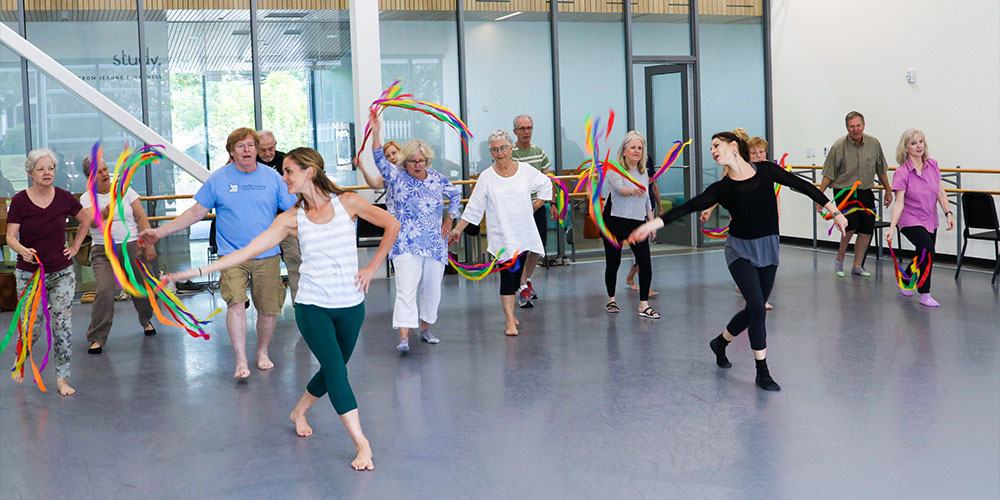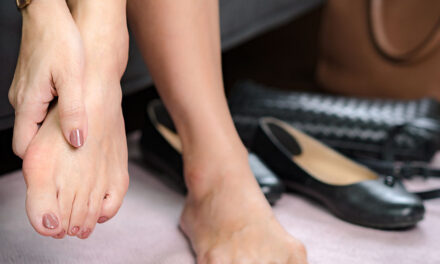Imagine suffering from tremors, stiffness, loss of balance, and eventually struggling with walking and talking – all because of a brain disorder entirely out of your control. Unfortunately, this is the reality for more than 10 million people worldwide who have Parkinson’s disease.
With a disease like Parkinson’s, finding joy through motion can sometimes feel impossible. It can also be an incredibly lonely disease. Experts in the field recognize the stigma around Parkinson’s, noting that specific symptoms like tremors and difficulty walking can make going out and socializing more difficult.
Enter Julie Niekrasz, 39, and Kristen Lucas, 38, trained dancers passionate about serving their community through dance. Julie is a classically trained dancer who retired from professional dance in 2018 and now serves as Ballet Memphis’ rehearsal director. Kristen is a modern dancer and professor at the University of Memphis. They both trained in New York City, where a fellow dancer introduced them. They reunited in Memphis to create Dance for Parkinson’s at Ballet Memphis, the only program of its kind in the area.
Held every Friday at 10:00 a.m. at Ballet Memphis’ midtown location, the class offers Parkinson’s disease fighters and their caretakers an opportunity to connect with their bodies and community through dance.
Watching Julie and Kristen in action, you can see they’re passionate about what they do, working together seamlessly to bring joy to the dancers. “For this hour, we don’t focus on the disease – we focus on laughter and dance,” Kristen says. “We don’t take ourselves too seriously because this is a chance to think and feel light for a moment.”
There’s a clear weight off the class’s collective shoulders as Julie and Kristen guide them through dances stimulating the brain and body. However, seeing the laughter and smiles on everyone’s faces makes it clear that physical stimulation isn’t the only benefit of this program. Despite some of the dancers being newcomers and some having been around since the program’s inception, the entire group has a clear sense of camaraderie.
“Parkinson’s can be such an isolating disease,” Julie remarks. “I think that’s why the sense of community is so important, and that’s what’s so special about this class.”
Dance for Parkinson’s was one of the first adult programs to come back post-COVID because the participants demanded it. They needed not only the movement but the social time and connection.
This community is so strong that it even led to the creation of a new nonprofit: 901 Parkinson’s Fighters. Its mission is to connect people with Parkinson’s in the Memphis community and to empower them to live active lives through educational programs and activities that are essential for their quality of life.
Dance for Parkinson’s is crucial to those who need it. And it’s not slowing down anytime soon. In July, the program was one of two organizations in Memphis to be awarded a Community Grant for $12,000 from the Parkinson’s Foundation. This funding will help expand the program, even further enriching the lives of those with Parkinson’s Disease.
For more information, call 901.737.7322 or visit balletmemphis.org.
By Lucy Modzelewski









